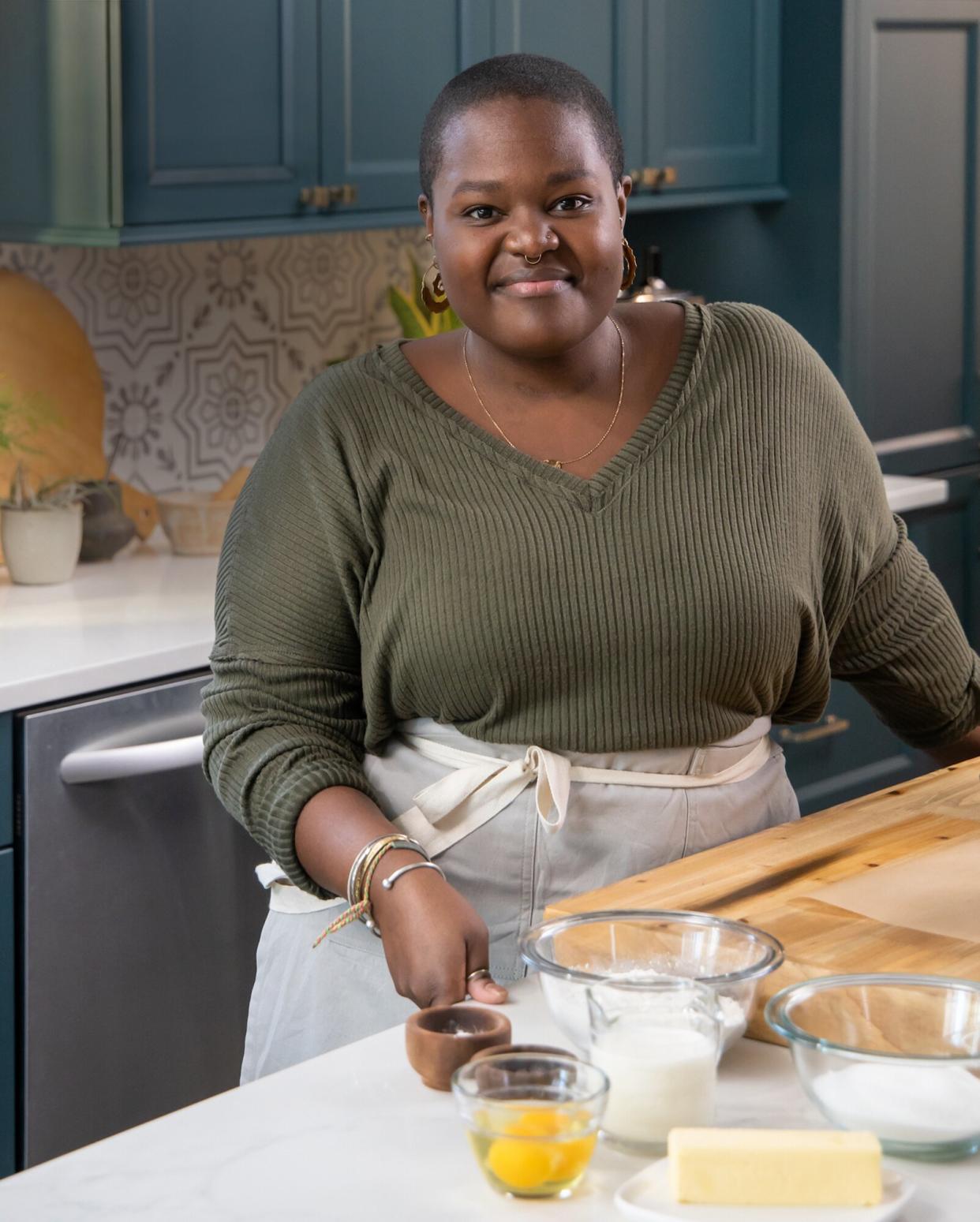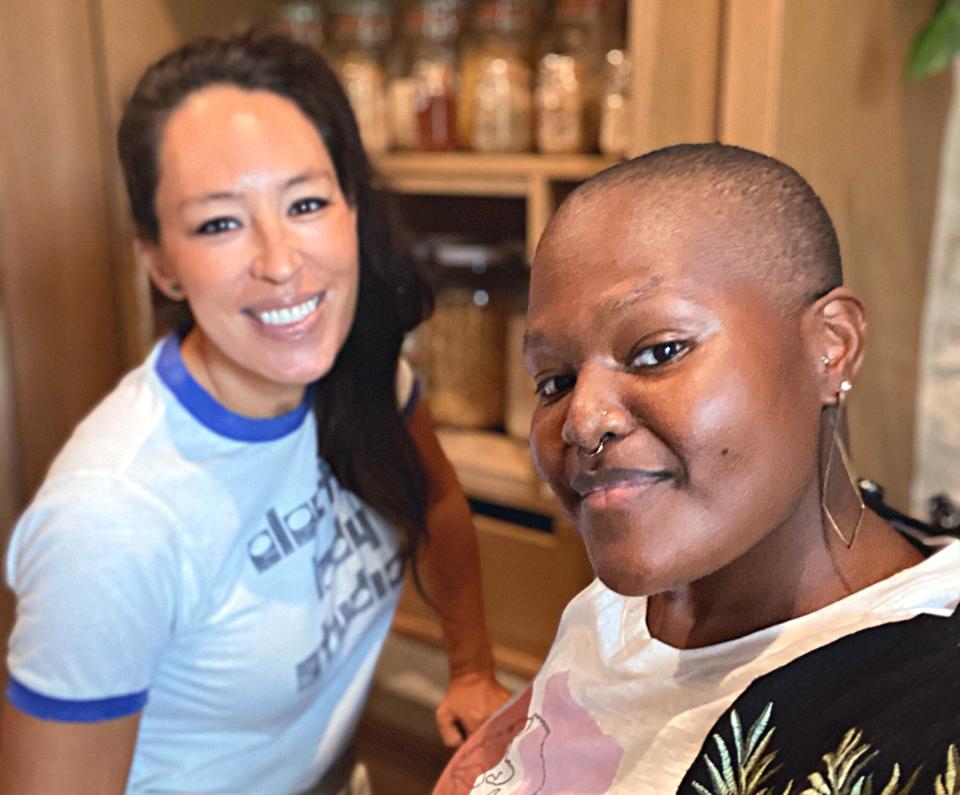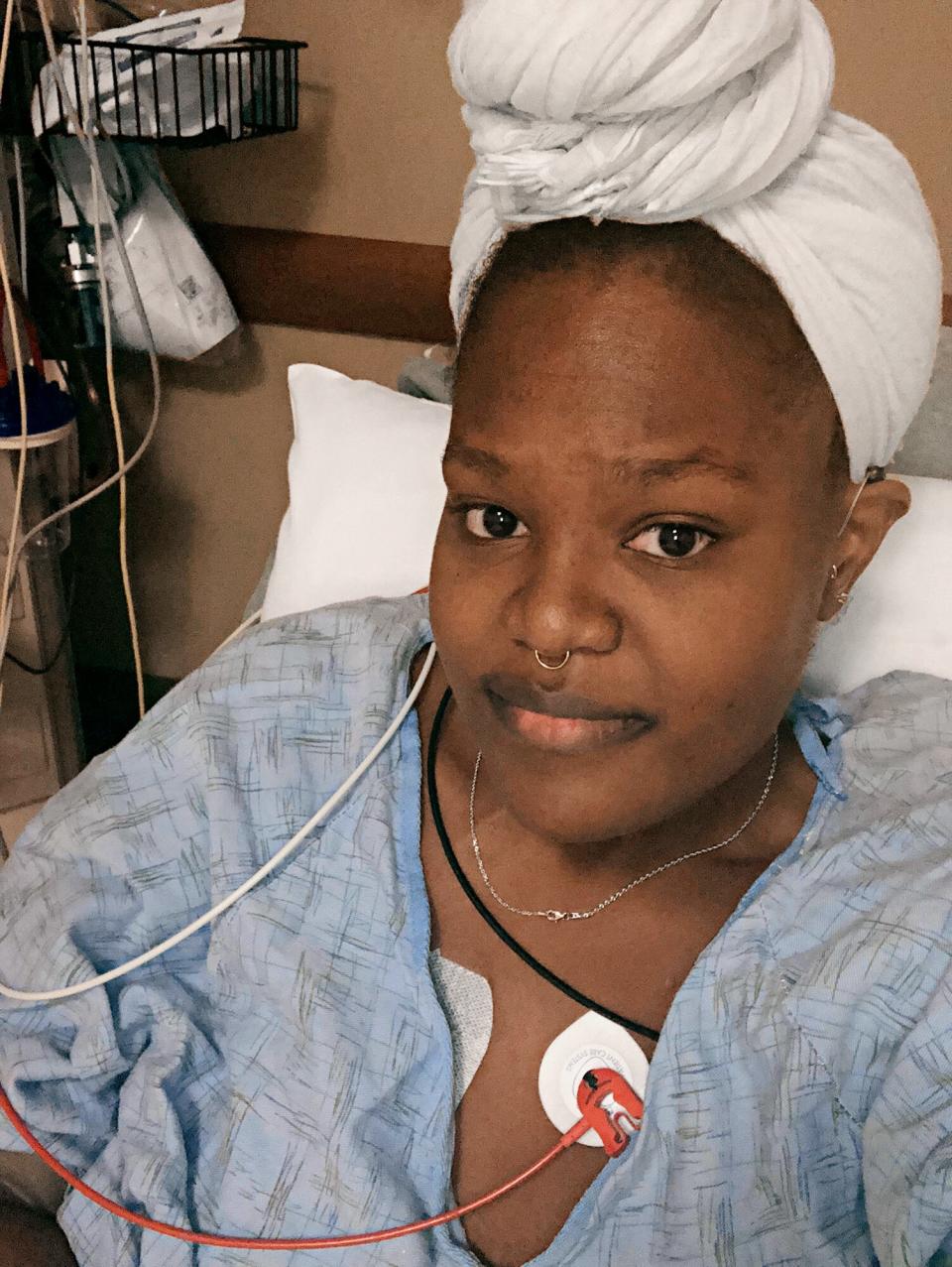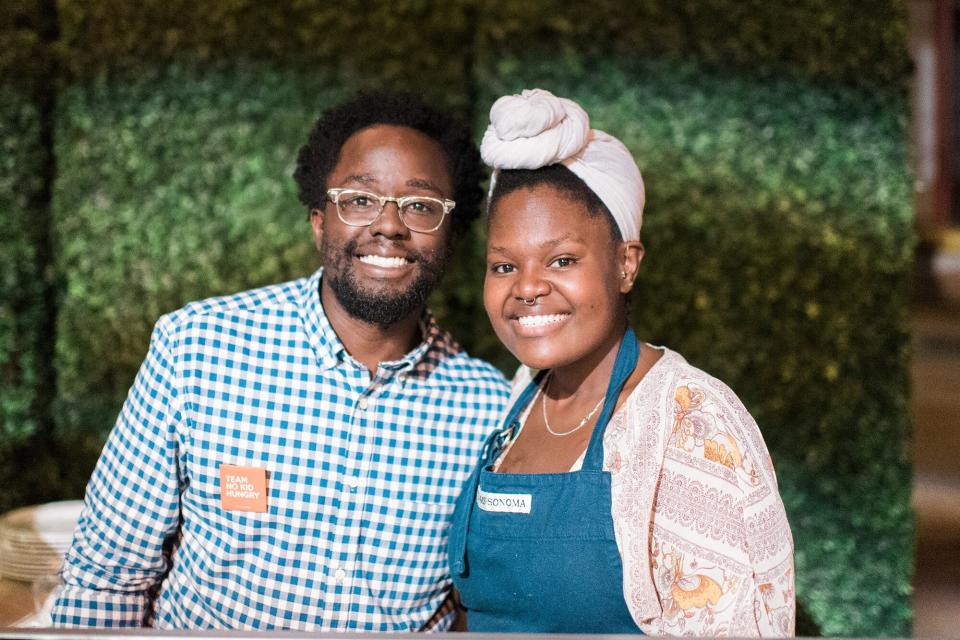Magnolia's Elise Smith Is Using Her Search for Life-Saving Bone Marrow to Urge People of Color to Donate

- Oops!Something went wrong.Please try again later.
Jennifer Chase/Magnolia Network
Elise Smith "can't encourage people enough" to join the bone marrow donor registry, to help save her own life and potentially so many others.
The Columbia, Md.-based baker and food influencer — who has been battling myelodysplastic syndrome (MDS), a rare blood cancer that causes bone marrow failure, since 2019 — has made this her mission especially since gaining her newfound fame on the Magnolia Network.
It all started with a granola recipe. Smith had her recipes go viral before, but the vegan, gluten-free recipe was the first that caught the attention of a celebrity. In May 2021, Joanna Gaines direct-messaged Smith on Instagram, inviting her to her kitchen studio in Waco, Texas, so the two could bake together.
RELATED: Former Great British Baking Show Host Sandi Toksvig Cancels New Zealand Tour Due to Illness

Courtesy Elise Smith “She’s such a genuinely warm person,” says Smith of Gaines (in Waco in September 2021). “It was very easy to be in the kitchen with her.”
It turns out that Gaines was looking for talent for her digital-learning series Magnolia Workshops. Smith, 32, quickly realized the invitation was an "informal interview" — one she passed with flying colors. She went on to film six episodes of her show Baked From Scratch in February.
But filming was challenging for Smith. "I do not eat on a set because I'm likely to get ill," she says.
Her nausea is one of many side effects from the chemotherapy she gets to treat MDS. Though treatment has kept her stable, Smith's best hope for a cure is a bone marrow or blood stem cell transplant. But the donor registry doesn't currently have a match for Smith.
White patients have a 79 percent chance of finding an existing match, while Black patients have just a 29 percent chance, according to Be the Match, the national registry of donors.
"We need more Black, Brown and multiethnic individuals on the registry because we are our best chances at saving ourselves," says Smith. "I can't just go out and get it from anyone."
Smith's diagnosis — the same cancer fought by Good Morning America's Robin Roberts, who was cured by a transplant in 2012 — is a secondary cancer caused by radiation treatment she received to treat thyroid cancer when she was 19.
"I did not think, 'I'm going to get another cancer from the very thing that cured me.' I really didn't," she says. "But after treatment, you do have this looming sense of the other shoe to drop."

Courtesy Elise Smith Smith gets treated every week at the University of Maryland Medical Center.
Smith operated in what she calls "cured bliss" for nearly 10 years before her second diagnosis, a time when she was able to perfect her baking skills.
"I always left the kitchen feeling like I could just take a deep breath," says Smith, whose late grandmother Winifred taught her to cook and inspired her Instagram handle @winniesbakery. "I would never say it substituted for real therapy, because I'm a very big believer in traditional therapy, but it held value."
Baked From Scratch (airing now and streaming on the Magnolia Network app) is a collection of her knowledge and best cake recipes, like her rosemary olive oil cake.
"Elise is such a talented baker in her own right, but we were also struck by her endurance and tenacity with her cancer journey," says Magnolia Network executive Andrew Rezin. "She is such a joy on and off screen."
RELATED: Ava DuVernay Becomes the First Black Woman on a Ben & Jerry's Pint with New Caramel Flavor
Smith is determined to use her platform to recruit new donors via Be the Match.
"Joining the registry is easy to do," says Beth Carrion, the Be the Match account manager helping Smith find her donor.
Fill out a registration online, and Be the Match will mail you a cheek swab kit with return postage included. You need to be between the ages of 18 and 40, because younger donors have more stem cells.
If you're the 1 in 220 who gets called as a match, there are two ways to donate: 85 percent of adults will give blood stem cells through an IV (a process that is usually painless, though time-consuming), and the other 15 percent will donate marrow from their pelvic bone under anesthesia.
"There's no cost. We reimburse missed time from work, we babysit, dog sit, you name it. We'll take care of it," says Carrion.
(Text TEAMELISE to 61474 or go to bethematch.org to start the process.)
"It's not easy for our communities to trust," says Smith, acknowledging the past mistreatment of Black Americans by the medical field. "So having people of influence who look like us, tell them that this is okay—it's just so important. I will do this until I can't anymore, for real."
Even if that means using up what little energy she has left. With just 5 percent remaining bone marrow, Smith is "tired all the time" and struggles with brain fog.
"I schedule my life around hospital visits," she says. "It's like stolen moments of chasing down my dreams."

Meghan Elizabeth photography
If her treatment stops working while she waits for a match, Smith will resort to using a transplant from her brother David. But because he is only a 50 percent match for her, there is a higher chance of recurrence.
Smith has too many aspirations to let that happen—she plans to write a cookbook, continue starring on TV and start her own family.
"I'd like to kick cancer's ass, and I want to create work that I'm proud of," she says. "I am a very hopeful person. I have every belief that I will find my match and make it through."

